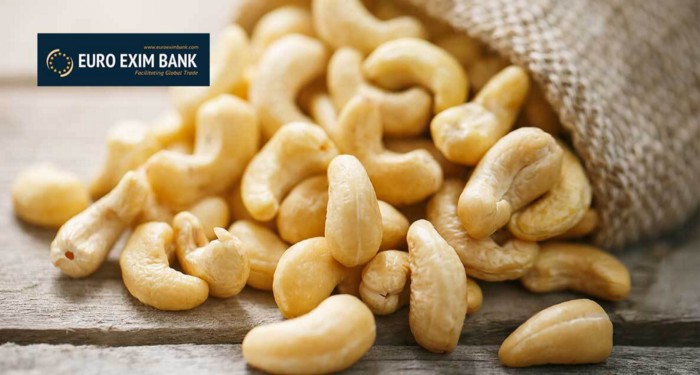Sep - 30
2020
2020

Importing Cashews from Nigeria into India
jbadmin
- India is among the top producers and consumers of cashew nuts. According to estimates, India accounts for nearly 20% of the global production on its own. India’s cashew exports stand at nearly 1.19 lakh MT.
- Despite abundant production, Indian importers look to import cashews from other markets to process them and re-export them, or to meet short-term demand surges. Indian importers have been reliant on Nigeria in order to source cashews.
- In order to import cashews, they must be fully aware of the regulations and other requirements. This blog focuses on the key aspects of importing cashews from Nigeria into India and provides a step-by-step guide to the importers based in the country.
Nigerian Imports into India
- As of 2019, the bilateral trade between the two countries stood at $13.9 billion, out of which $10.9 billion were Indian imports.
- At present, the cashews imported from Least Developed Countries (LDCs) are not subjected to any import duties in India. However, Nigeria is not considered to be an LDC. Therefore, cashew imports from the country are subject to an import duty of 2.5%.
- The African Continental Free Trade Area (AfCFTA) is one of the fundamental agreements that cover African exports. Nigeria was one of the last countries to sign the agreement. The African country finally became party to the agreement in July 2019, opening the door for further easing of exports to India in the future. If India signs a deal with the AfCFTA in the future, it could result in reduced import duties.
- Graham Bright, the Head of Compliance and Operations at Euro Exim Bank, said, “Nigeria, which has almost 200 million people, it’s a huge population. It’s a great manufacturing centre; it’s a great import centre. Not always easy to move money in and out. However, there is a growth in confidence; there’s a merging of banks; there’s more liquidity there.”
How to Import Cashews into India from Nigeria
- The first step towards importing cashews into India is to obtain a license. Indian importers need to apply for an FSSAI licence and GSTIN registration. Importers also need to have an IEC registration, which gives them a license to import or export. The IEC number is a 10-character number allocated to importers in order to identify them.
- Once the licenses and documents are in place, the next step is to contact the exporter and arrive at an agreement. Such an agreement typically includes the quantity of the product as well as the pricing details. It is during this stage that the importer must consider the use of financial instruments such as Bank Guarantees.
- Thereafter, the next stage is to track the shipment. Once it has arrived onshore, then the importer must pay the import and customs duties. The import duty for Nigerian cashews is 2.5%, while the customs duty stands at 70%.
- After the respective duties have been paid, the importers must receive the products and issue a confirmation. The cashews that have been imported should be verified before any such acceptance. Finally, once the cashews have been accepted, the transaction is complete, and the payment can be released.
Conclusion
- To smoothen the import process, importers can seek the help of international financial institutions. Institutions such as Euro Exim Bank offer specialised support in the form of financial instruments and other trade advisory services. The bank offers solutions that can help Indian importers in sourcing cashews from markets such as Nigeria. Euro Exim Bank offers financial instruments like Bank Guarantees and Letters of Credit (LCs). Further information about Euro Exim Bank and its key offerings is available here.